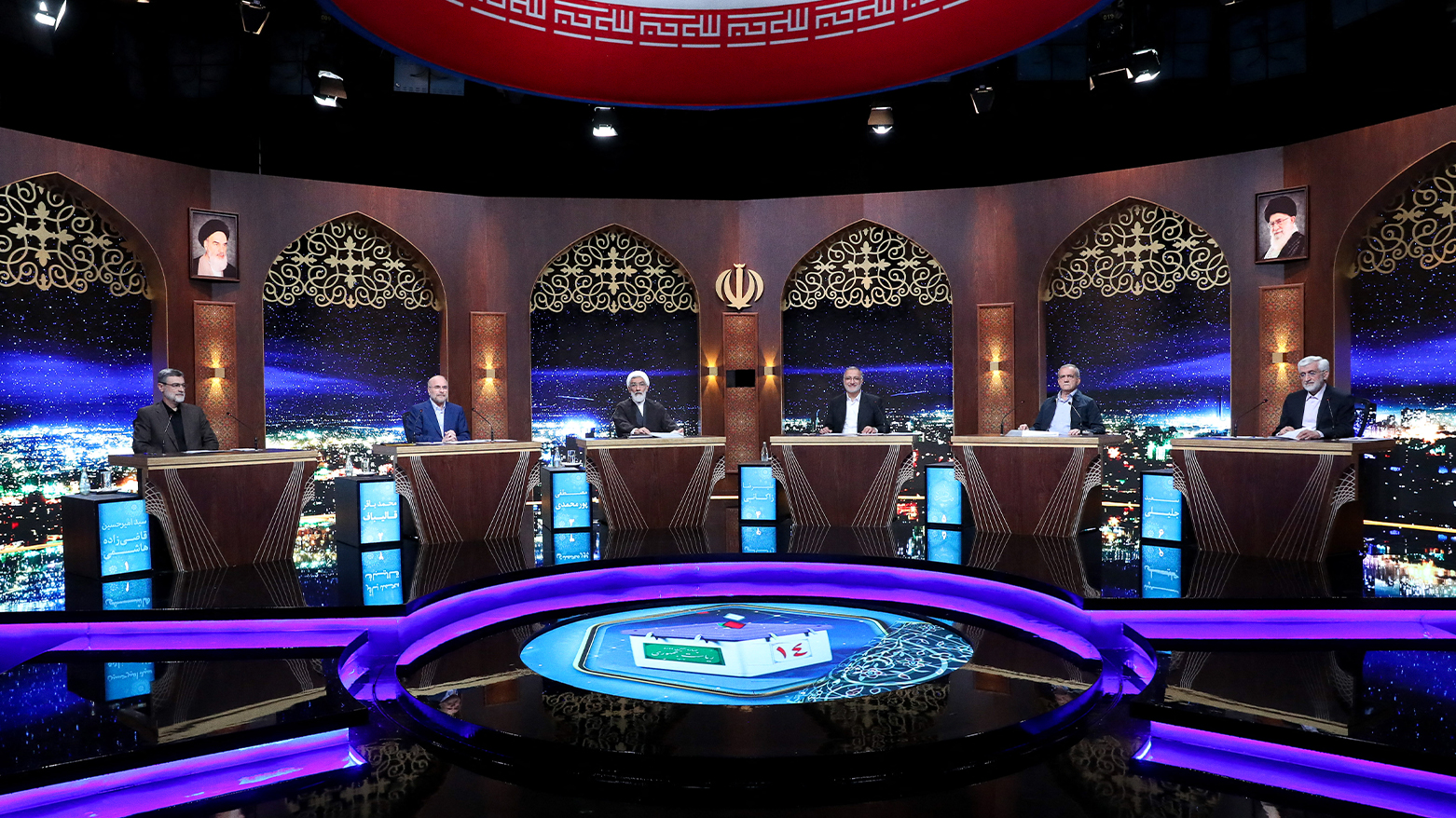Iranian presidential candidates debate foreign policy strategies
The debate highlighted differing perspectives on how Iran should navigate its foreign policy, particularly concerning the nuclear agreement, sanctions, and regional relations.

ERBIL (Kurdistan 24) - The fourth debate among the six candidates for the Iranian presidential elections was held on Monday evening, focusing on the country's foreign policy under the title “Iran in Today’s World.”
Saeed Jalili
Candidate Saeed Jalili criticized the nuclear agreement, stating it did not solve the people's problems.
He emphasized the importance of neutralizing and eliminating sanctions through practical plans and stressed integrating Iran’s economy into the global economic chain.
Jalili pointed to regional opportunities, particularly in the downstream petrochemical industry, and advocated for broader international cooperation beyond hostile nations, including Latin America, Africa, and neighboring countries.
Mohammad Bagher Ghalibaf
Candidate Mohammad Bagher Ghalibaf praised General Qassem Soleimani, head of the Quds Force, the paramilitary arm of Iran’s Islamic Revolutionary Guard, for his field diplomacy and ability to create national unity.
Ghalibaf emphasized the need to resume negotiations to thwart sanctions and raise economic growth.
He highlighted the importance of national consensus and unity, promising to negotiate within the framework of state policies and secure agreements that bring economic benefits.
Alireza Zakani
Candidate Alireza Zakani reminded that Iran did not burn the nuclear agreement, emphasizing Iran’s internal and regional capabilities.
He highlighted Iran's membership in the Shanghai Organization and BRICS and stressed the need to break the siege on Iran and dispel its negative image.
Zakani focused on strengthening the axis of resistance and economic diplomacy to make other countries depend on Iran.
Amir-Hossein Ghazizadeh Hashemi
Candidate Amir-Hossein Ghazizadeh Hashemi criticized the nuclear agreement as a loss for Iran. He emphasized Iran’s policy of establishing peace and preventing foreign interference in the region.
Ghazizadeh Hashemi advocated for maintaining strong relations with neighbors while preventing external interference.
Masoud Pezeshkian
Candidate Masoud Pezeshkian questioned his opponents' alternatives to the nuclear agreement and praised the deterrent military capabilities of the Islamic Revolutionary Guard Corps.
Pezeshkian argued that foreign policy is the best way to lift sanctions on Iran and emphasized regional opportunities for strengthening brotherhood and economic ties.
He called for expert involvement in resolving issues related to sanctions and international agreements like The Financial Action Task Force (FATF).
Mostafa Pourmahammadi
Candidate Mostafa Pourmahammadi stressed the importance of domestic policy, considering it an extension of foreign policy.
He argued that a strong domestic policy is crucial for advancing Iran’s goals internationally.
The debate highlighted differing perspectives on how Iran should navigate its foreign policy, particularly concerning the nuclear agreement, sanctions, and regional relations.